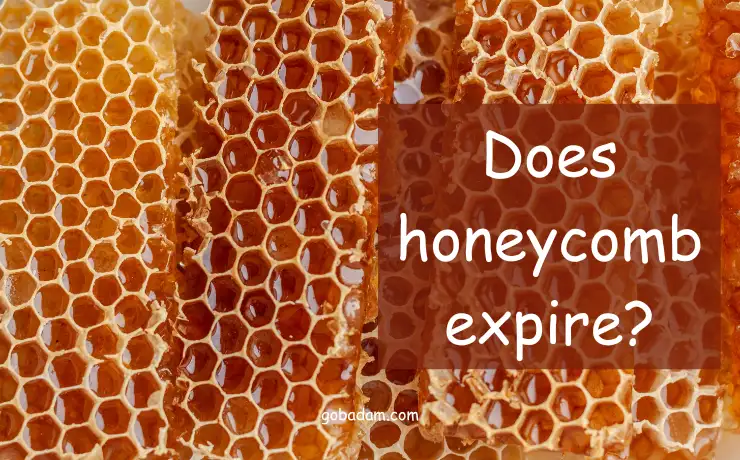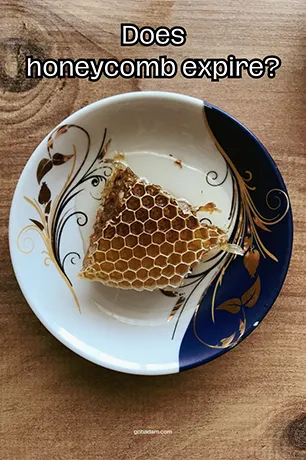Does honeycomb expire? In the world of food, some things age like fine wine, while others deteriorate quickly. Honeycomb, a wondrous gift from nature, often prompts this significant query for many honey aficionados and culinary enthusiasts alike.
Join me as we explore the lifespan, storage, and quality aspects of honeycomb. Also, if you like honey, these products may come in handy.
Does honeycomb expire?
“Does honeycomb expire?” is a question posed by many, especially those newly introduced to this natural marvel. Honeycomb is not just honey in its raw form but an intricate structure of hexagonal cells made by bees from beeswax. These cells not only store honey but also pollen and are the birthplace of the hive’s young. The properties of honeycomb make it uniquely lasting, much more so than many other natural foods.
To answer the question straightforwardly: honeycomb does not ‘expire’ in the traditional sense, especially when kept under ideal conditions. Its composition and the meticulous process bees follow to create it ensure its longevity.
One of the primary reasons honey and, by extension, honeycomb, can last for such extended periods is its low water content. Honeybees flap their wings vigorously, creating airflow that helps evaporate excess water from the nectar, reducing the water content and turning it into thick honey. A low water content means there’s less chance for microorganisms to thrive.
Additionally, honey is naturally acidic. This high acidity level, combined with its low moisture content, makes it a hostile environment for most bacteria and fungi. In fact, if you ever submerged harmful bacteria in honey, the majority of them wouldn’t survive.
Now, let’s talk about the beeswax structure that holds the honey – the honeycomb. Beeswax itself has preservation properties. Being impermeable to air and water, it creates a natural sealant, ensuring the honey stored within remains uncontaminated and preserved. This beeswax barrier, combined with honey’s intrinsic properties, means that the honey within the honeycomb is doubly protected.
However, while the honeycomb doesn’t traditionally ‘expire’, it’s essential to be aware of its storage conditions. Exposing honeycomb to high humidity or temperatures can make the honey absorb water from the environment, potentially leading it to ferment. Thus, for optimal longevity, it’s best to store the honeycomb in a cool, dry place, away from direct sunlight, and in an airtight container.
In conclusion, honeycomb, with its magical blend of beeswax and honey, is nature’s preservative masterpiece. Not only does it offer a symphony of tastes and textures, but its unique composition ensures that you can enjoy this sweet delight for years, if not decades, without the typical concerns of spoilage.
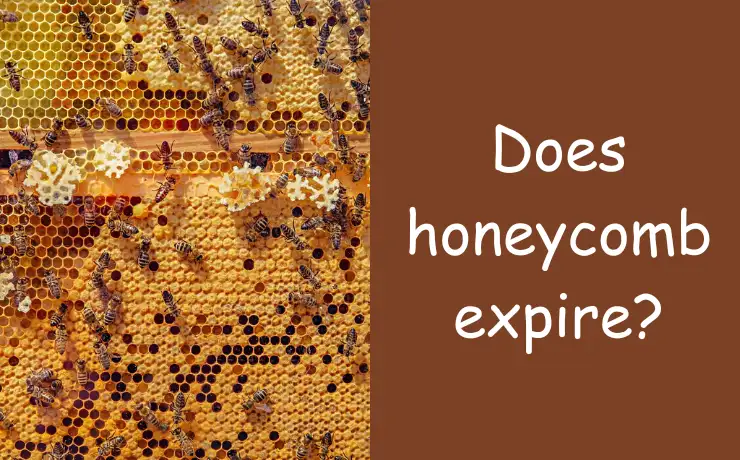
How Long Does Honeycomb Last? A Journey Through Time
The durability and longevity of honeycomb truly stand out in the realm of natural foods. When considering the question, “How long does honeycomb last?”, one might be astonished at the answer. Unlike many perishables we’re accustomed to in our modern kitchens, honeycomb’s shelf life can span not just months or years, but even centuries.
Central to honeycomb’s impressive shelf life is its composition and the environment it’s stored in. When placed in a cool, dry spot, honeycomb maintains its quality for an extensive period, sometimes stretching into decades. This isn’t just a theoretical claim; history offers tangible proof. The ancient Egyptians, revered for their advanced practices in various fields, recognized honey’s preservative nature. They would place honey in their tombs, intended for the deceased to carry into the afterlife. This practice has led modern archaeologists to make astounding discoveries. Pots of honey, sealed and undisturbed for over 3,000 years in ancient Egyptian tombs, have been unearthed in perfect, edible condition.
However, the secret to honeycomb’s longevity isn’t just about the honey. The hexagonal cells of the honeycomb, made from beeswax, play a pivotal role in preservation. Beeswax acts as a natural barrier, protecting the honey inside from external contaminants. This combination of honey and beeswax ensures that the nutritional and taste profiles of the honey remain unaltered over long durations.
Of course, while honeycomb can last for an incredibly long time, there are factors that can reduce its quality. Exposure to moisture can lead to fermentation, and high temperatures might alter its consistency. Moreover, while the honey itself remains preserved, the beeswax can become brittle or change texture over very long periods.
In conclusion, if you’re looking to invest in a natural sweetener that stands the test of time, honeycomb is an exceptional choice. With minimal care, you can ensure that this delightful gift from nature remains as tantalizing and rich as the day it was harvested. Whether you’re savoring its sweetness in your daily diet or marveling at its historical significance, honeycomb is a testament to nature’s unparalleled preservative prowess.
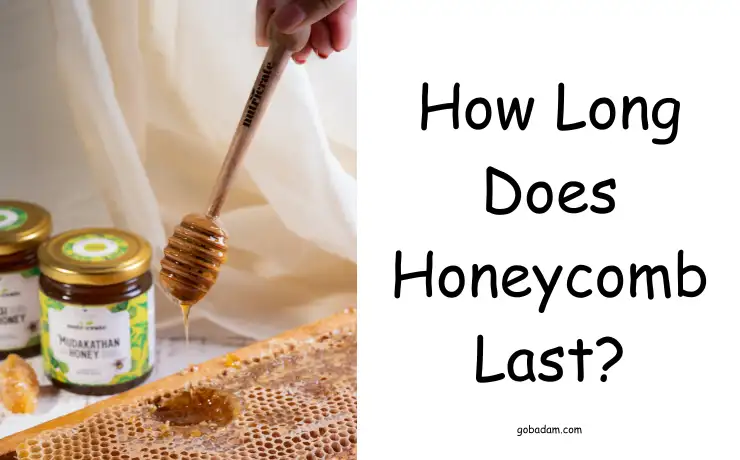
Does the honeycomb quality decrease after opening?
Once opened, honeycomb is more susceptible to environmental factors. Though its intrinsic properties prevent spoilage, exposure to air and moisture can change its taste and texture. So, while the quality may not drastically decrease, for the best experience, consume it within a year or two of opening.
Does honeycomb go bad? Understanding Its Changes
Honeycomb, in essence, doesn’t spoil in the way many foods do. However, over time, the honey within can undergo crystallization, where it shifts from a liquid to a grainy, solid form. This change isn’t spoilage but a natural occurrence. While some might be taken aback by this altered texture, many actually favor crystallized honey for its creamy consistency. It’s vital to note that this crystallization doesn’t diminish the quality or taste of the honey. Proper storage is key to maintaining its best condition, but even if it does crystallize, the honey remains safe and delightful to consume.
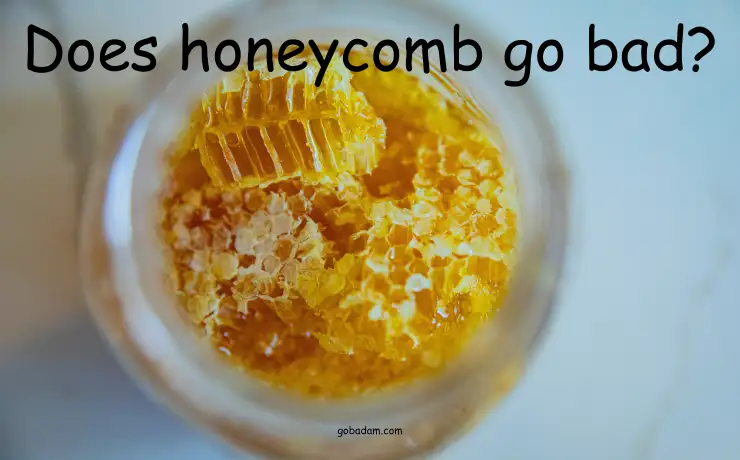
If the honeycomb is left open, what happens?
Leaving honeycomb exposed has its consequences. With direct contact with air and ambient moisture, the honey inside the comb can change in texture due to moisture absorption. This can sometimes initiate fermentation.
Additionally, an open honeycomb is vulnerable to external contaminants, from dust to tiny insects. While it might not “spoil” in the traditional sense, the overall experience – from its texture to taste – can certainly degrade. For the best honeycomb experience, always ensure it’s adequately sealed and stored.
Effects of Refrigeration on Honeycomb
Refrigerating honeycomb might seem like a logical step for preservation, but it has a direct impact on its consistency. The cold environment speeds up the honey’s crystallization, turning it from its smooth liquid form to a more solid, grainy texture. However, it’s essential to note that this crystallization isn’t a sign of spoilage. The honeycomb remains entirely safe for consumption. For those who favor the original liquid consistency, a quick solution is immersing the honey container in warm water, which will revert the honey back to its liquid form.
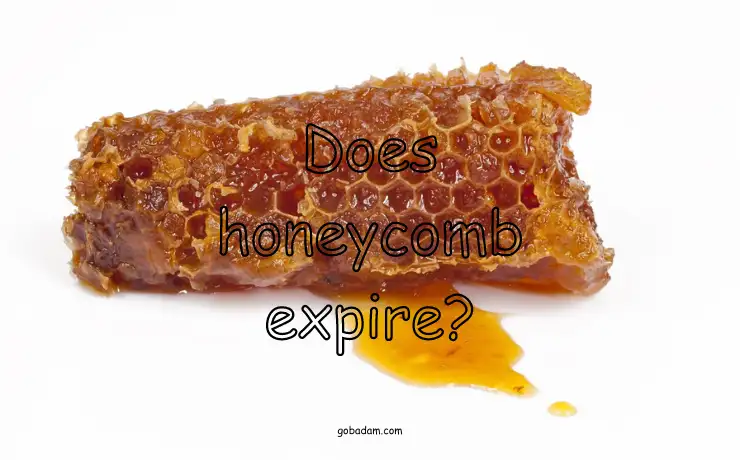
According to Reddit, can honey go bad?
When it comes to honey’s shelf life, Reddit users largely agree: Honey’s unique properties make it resistant to spoilage. Although it doesn’t “expire” in the typical sense, Reddit users emphasize the importance of storage. Keeping honey in a warm place or allowing it to come into contact with contaminants may not make it inedible, but it can certainly affect its taste and overall quality. Although honey is basically durable, it is still very important to store it correctly to maintain its pristine condition.
How to store honeycomb
Preserving the freshness and flavor of honeycomb is relatively simple, yet crucial for the best experience. To ensure that your honeycomb remains in its prime condition, follow these storage recommendations:
- Cool & Dry Environment: Just like wine, honeycomb prefers a stable environment. A cool, dry place, away from direct sunlight, is ideal. This helps prevent fermentation and crystallization.
- Airtight Containers: To protect your honeycomb from moisture and air, always store it in a sealed container. This not only maintains its texture but also keeps unwanted contaminants at bay.
- Keep Away from Pungent Items: Honey has a knack for absorbing the scents around it. Store it away from spices, onions, or any strong-smelling substances to prevent any unintentional flavor changes.
By following these simple steps, you can enjoy the natural sweetness and unique texture of honeycomb for a long time.
👉 Also, if you like honey, these products may come in handy.
Top Asked Questions About Does honeycomb expire?
Here I collect the most frequently asked questions about honeycomb deterioration. You can continue to share with me what you are curious about.
What is a honeycomb?
A honeycomb is a natural structure created by bees from beeswax. It consists of hexagonal cells that store honey and provide a space for bees to raise their young.
Does honeycomb expire or go bad?
Honeycomb doesn’t expire in the traditional sense. However, its texture and consistency can change over time, like honey crystallizing. Proper storage ensures its longevity.
Can you eat the beeswax in a honeycomb?
Yes, the beeswax in the honeycomb is edible. While it doesn’t offer much in terms of flavor, it provides a unique texture that many people enjoy.
How should honeycomb be stored?
For optimal longevity, honeycomb should be stored in a cool, dry place, sealed in an airtight container, and away from strong odors.
What are the health benefits of honeycomb?
Honeycomb contains honey, beeswax, and sometimes bee pollen, which are known for their antimicrobial properties, antioxidants, and potential anti-inflammatory effects.
How do bees make honeycombs?
Bees secrete beeswax from their abdominal glands, which they then mold to form the hexagonal cells of the honeycomb, using it to store honey and house their larvae.
Why does honey crystallize in the honeycomb?
Honey crystallizes due to its natural sugar content and can be influenced by temperature. It’s a natural process and doesn’t indicate spoilage.
Is honeycomb vegan?
Honeycomb is an animal product, produced by bees. Most vegans avoid honey and honeycomb due to ethical concerns related to beekeeping practices.
How can I use honeycomb in recipes?
Honeycomb can be spread on toast, added to cheese platters, melted into hot beverages, or used as a sweet garnish for desserts.
Can I give honeycomb to my children?
While honeycomb is safe for older children, it’s advised not to give honey, including honeycomb, to infants under 12 months due to the risk of botulism.
When exploring the shelf life of various kitchen staples, many often wonder: Can halva go bad? Similarly, questions arise about products like Can Tahini Go Bad? or condiments like Do Capers Go Bad? Even everyday items aren’t exempt from such inquiries, prompting questions like Does Pasta Go Bad?, Does Cornstarch Go Bad?, Does Kit Kat expire date?, and How Long Do Bagels Last?

